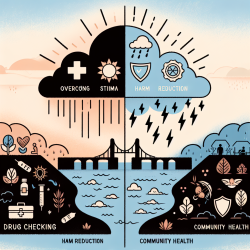Embracing the Ethics of Care: A Pragmatist Approach to Speech Language Pathology
In the field of speech language pathology, where the focus is on improving communication outcomes for children, integrating the ethics of care and pragmatism can provide a transformative approach. The research article "Through thick and thin: the romance of the species in the anthropocene" by Haiyan Lee offers valuable insights that can be applied to enhance our practice. This blog explores how these concepts can be integrated into speech language pathology to improve outcomes for children.
Understanding the Ethics of Care
The ethics of care emphasizes the importance of emotional connections and relationships in ethical decision-making. It challenges the traditional focus on abstract principles and universal rules, advocating instead for a more relational approach that considers the specific needs and contexts of individuals. In speech language pathology, this means prioritizing the unique needs and experiences of each child, fostering a supportive and empathetic environment that encourages communication growth.
Pragmatism in Practice
Pragmatism, as discussed in Lee's research, involves a flexible approach to ethical decision-making that considers the practical implications of actions. It encourages practitioners to evaluate the outcomes of their interventions based on real-world results, rather than adhering strictly to theoretical principles. This aligns with a data-driven approach in speech language pathology, where evidence-based practices are used to inform treatment decisions and measure progress.
Integrating Ethics of Care and Pragmatism
By integrating the ethics of care and pragmatism, speech language pathologists can create a holistic approach that combines emotional intelligence with data-driven decisions. This involves:
- Building strong, empathetic relationships with children and their families to understand their unique needs and goals.
- Using evidence-based practices to inform treatment plans, while remaining flexible and open to adapting interventions based on individual progress and feedback.
- Encouraging collaboration and communication among multidisciplinary teams to ensure comprehensive support for each child.
- Reflecting on the outcomes of interventions to continuously improve practice and enhance child outcomes.
Encouraging Further Research
Lee's research highlights the importance of exploring diverse perspectives and approaches in ethical decision-making. Speech language pathologists are encouraged to engage in further research and dialogue to deepen their understanding of the ethics of care and pragmatism. This can lead to innovative practices that better support children in achieving their communication goals.
To read the original research paper, please follow this link: Through thick and thin: the romance of the species in the anthropocene.










